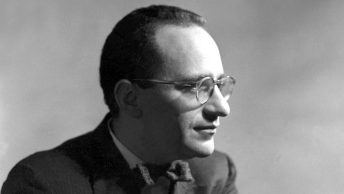Long time ago, the Orthodox Church found the Filioque inconsistent with the interpersonal distinctions between the Persons of the Holy Trinity, and prone to establish the “monarchy” of a supra-personal Essence or Nature. Is the Filioque also responsible for the statist obliteration of man, in a projection of deviant trinitarian theology on Western culture and society? An Orthodox monk and convert from Roman Catholicism (who wishes to preserve anonymity) suggests it is:
«…A person is not a function of nature. He underlies his nature. A human person, John, has a human nature because from all eternity God has specifically willed that this unique John exist, and he is given his nature so that he might act through it. In other words, in the genuinely Christian understanding of created person, “whoness” precedes “whatness”. The person is not contained within the nature, but the nature is contained within the person. This is reflected in the Greek term for person, hypostasis, which means literally, “standing under”, that is, the ground. ( The Latin substantia has the same root meaning, although it can in common use be equally employed to mean substance or stuff.) A person is an absolutely unique and individual, indefinable, irreducible, simple (i.e., without composite parts) mystery capable of knowing and loving ,and without analogy to any other created person. We can philosophically identify what John is, that is, a man. We can never identify what it is that makes John who he is. John is not only more than his accidents, he literally understands both parts of his nature. ( To reflect upon this in biblical terms, one might consider the mysterious passage in the book of Revelation in which it is said that each of the faithful will be given a new name written upon a white stone, which name will be known only to God and the one receiving it. Ultimately, to be a person depends upon being called by God to be uniquely completed in His image and likeness by communion with Him. ) The distinctions of this terminology were crafted during the great Trinitarian and Christological debates of the seven councils of the undivided Church. It is crucial to recall always that these distinctions and definitions are the gifts of the Church: they are theological, and not philosophical in origin. A philosophy of person, understood in Christian terms, is an impossibility. A philosophy of self is possible, but consider the difference between the adjectival derivatives of the two words: “personal” and “selfish”…
…From an Orthodox standpoint, the fundamental problem in all western European thought is confusion of person and nature, seeing person as a function of nature, however “really special”. We hold that the roots of this confusion lie in the Roman Catholic dogma of the “filioque”, the unscriptural and patristically unwarranted Augustinian opinion illicitly interpolated into the Creed at the court of Charlemagne, that the Holy Spirit proceeds from the Father “and the Son”. To us this teaching results in Western Europeans seeing the Persons through modalist or semi-Sabellian glasses as facets of the underlying Divine Nature. This banefully flowers in an (at least) semi-Arian psychology and culture, the fruits of which since the eleventh century (at least) have been the ever- avalanching deaths of millions who were deemed somehow to be this or that “kind of person” by various corporate powers – starting with the church – claiming usurped authority to act in place of God . We don’t see much essential difference between the Inquisition and Abu Ghraib, or between the stake and the gulag; and we do see a direct connection historically between the doctrine of the double procession of the Holy Spirit and Hegel’s dialectical process of Thesis-Antithesis-Synthesis – with the the mystical historiography of the perhaps soon-to-be-sainted Joachim of Fiore (who in rather Marcionite fashion postulated successive “Ages” of the Father, the Son, and a coming one of the Spirit), as a link between the two. Hegel is , of course, the chief progenitor of every contemporary system of totalitarian mass murder, including the one which currently holds increasingly paranoidal and bloody global sway. As to any coming Age of the Spirit, the chiliastic parallels to both Marxism and the New World Order should be chillingly apparent to any traditionally minded Christian keeping one eye on the news and the other on the final book in the canon of the New Testament…»
[For a very different, rather historicist/neo-joacchimite reading of the relationship between trinitarian theology and society, see the late Harold Berman’s case for An Ecumenical Christian Jurisprudence. But, notwithstanding Berman’s wonderful historical scholarship and wit, I cannot see how his theology can point to any particular conclusions, rather than accomodate a wider spectrum of eclectic “ecumenists” than even he would wish]





